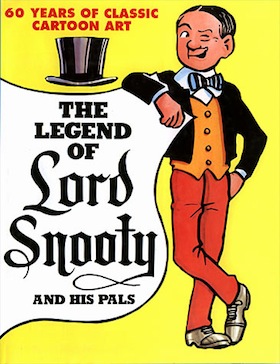Monarchies are back? Let's hope not — we need politics fit for adults, not fairy tales fit only for children.
So Britain has had a royal wedding. Is that any reason to inflict the aristocracy on the rest of us?
For me personally the sight of Irish people getting misty-eyed about their former imperial masters would have been pretty hard to take were it not for two facts: the only people who actually cared were those who were really only interested in the wedding as a fashion parade and the curious breed of forelock-tugging, self-loathing Irish who run rampage over the editorial pages of our newspapers but haven't even a glancing relationship with reality on the ground. Those who didn't fit into either group? They just ignored it.
Back where they come from there was at least some criticism. True, much of the anti-royal commentary in Britain's liberal press was little more than sneering, but the shrill tone of its critics doesn't mean inherited privilege is anything to celebrate.
Alas it's not only the British who continue to doff the cap to their alleged betters. Twelve monarchies exist in Europe today, not to mention the clutch of dispossessed, itinerant aristos who claim to be royals despite having been given the heave-ho by their former subjects.
You could be mistaken for assuming monarchies belonged to a time gone by — and in truth they should — but to do so would require a Herculean effort, at least in terms of ability to ignore the fawning guff that has been published in the press of late. The latest wheeze is that having a head of state who is somehow "above politics" is good for us. This is, of course, arrant nonsense — and untrue as we can see from the continual voicing of reactionary, anti-modern political opinions by Britain's future king Prince Charles. Many a British pundit has attempted to scare up support for the monarchy by raising the dread spectre of a "president Blair". Well, no-one is forced to vote for a president, and in any reasonable republic they get to choose their presidents in elections.
More to the point, no leader should be "above" the possibility of being booted out of office by his or her bosses, the electorate.
The notion that monarchies, for instance, put a lid on ethnic conflicts is not only highly tendentious, it's also an abdication of political responsibility. The idea that we'd all be tearing at one another's throats were it nor for some posh bloke in a silly hat goes a long way to infantalising political discourse and the nature of disagreements. It also ignores the fact that unelected lords and masters are usually drawn from one dominant group anyway.
Britain's Prince William received the title Baron Carrickfergus (among others) immediately prior to his wedding but he's about as Irish as a Cornish pasty. His father's title, Prince of Wales, was in 1301 specifically gifted to the next in line to the English throne as a sign of English dominion over Wales. In truth, though, the historial question of titles is an unimportant issue. What does matter, however, is popular sovereignty.
On occasion I have taken a pot shot at the European Commission and other European Union institutions for their lack of democratic spirit. By comparison to monarchies, however, the various arms of the EU are paradigms of political legitimacy.
Let's say no to Lord Snooty and his pals and yes to governing ourselves.
Do you like our work?
Help multilingual European journalism to thrive, without ads or paywalls. Your one-off or regular support will keep our newsroom independent. Thank you!












